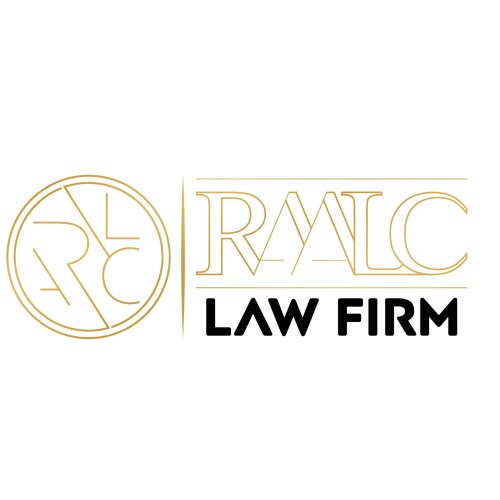Best Banking & Finance Lawyers in Dubai
Share your needs with us, get contacted by law firms.
Free. Takes 2 min.
List of the best lawyers in Dubai, United Arab Emirates
United Arab Emirates Banking & Finance Legal Articles
Browse our 1 legal article about Banking & Finance in United Arab Emirates written by expert lawyers.
- Cheque Bounce Cases in UAE: Legal Consequences and Procedures
- Table of ContentsIntroduction: The Current Landscape for Cheque Law in the UAEThe New Legal Landscape: What Really Changed?The Shift from Criminal to Civil EnforcementThe Power of a "Writ of Execution"The Bank's New ObligationsFor the Creditor: A Step-by-Step Enforcement GuideStep 1: Obtain the Official Dishonour DocumentsStep 2: Issue a Formal Legal... Read more →
About Banking & Finance Law in Dubai, United Arab Emirates
The banking and financial sector in Dubai, being a global business hub, operates under a robust legal framework. The Central Bank of UAE is the primary body regulating the sector which includes credit and financial institutions, banks, and investment firms. Additionally, the Dubai Financial Services Authority (DFSA) oversees financial & banking activities within the Dubai International Financial Centre (DIFC). The wide array of regulations covers aspects such as anti-money laundering, data protection, consumer rights, lending, taxation, and Islamic banking.
Why You May Need a Lawyer
Legal advice is often needed in matters related to applying for business loans, setting up of a new bank or financial institution, matters related to insolvency, breach of banking contracts, merger or acquisition-related issues, and international transactions. Alongside, legal aid could be beneficial in ensuring ongoing banking or financial operations are in compliance with the complex regulatory landscape within Dubai.
Local Laws Overview
The local laws of Dubai are primarily influenced by Islamic law (Sharia law) in addition to civil law traditions. It has a separate framework for Islamic Finance, which prohibits interest or engaging in speculative activities. Additional significant regulations include the UAE's Central Bank Regulation which governs the licensing of banks, anti-money laundering laws, and consumer protection laws. For institutions under DIFC, they are regulated by common law framework influenced by English law.
Frequently Asked Questions
What are the banking hours in Dubai?
Banking hours typically fall between 8 AM and 1 PM, Saturday to Thursday but can vary among institutions. Many banks offer electronic services 24/7.
Does Dubai allow foreign investment in the Banking & Finance sector?
Yes, Dubai encourages foreign investment in many sectors, including banking and finance. However, every foreign investor must abide by the legislation and regulatory standards enforced by UAE's Central Bank and DFSA.
What is Islamic Banking?
Islamic Banking refers to a system of banking that is in compliance with the principles of Islamic law (Sharia law). It prohibits earning and payment of interest but promotes profit-sharing and joint risk-bearing.
What are the main anti-money laundering requirements?
Entities are obligated to implement internal policies, procedures and controls to combat money laundering, including maintaining rigorous customer identification, record-keeping, reporting suspicious transactions and cooperating with local authorities.
How can I resolve a dispute with a banking institution in Dubai?
You should first attempt to resolve the issue with the bank directly. If this proves unsuccessful, you can consider submitting a formal complaint to the Central Bank of UAE or the DFSA, depending on the jurisdiction of the bank.
Additional Resources
The Central Bank of the UAE and the Dubai Financial Services Authority (DFSA) websites are primary resources for detailed banking and finance regulations in Dubai. You can also refer to the official portal of the UAE government which provides comprehensive information on banking laws, consumer rights, and anti-money laundering rules.
Next Steps
If you require legal assistance concerning banking and finance matters in Dubai, start by understanding your specific need. It's recommended to engage with a local lawyer who specializes in banking and finance law in Dubai. They will have the right knowledge of the intricacies of local and federal laws, banking norms, and regulatory requirements pertinent to your situation.
Lawzana helps you find the best lawyers and law firms in Dubai through a curated and pre-screened list of qualified legal professionals. Our platform offers rankings and detailed profiles of attorneys and law firms, allowing you to compare based on practice areas, including Banking & Finance, experience, and client feedback.
Each profile includes a description of the firm's areas of practice, client reviews, team members and partners, year of establishment, spoken languages, office locations, contact information, social media presence, and any published articles or resources. Most firms on our platform speak English and are experienced in both local and international legal matters.
Get a quote from top-rated law firms in Dubai, United Arab Emirates — quickly, securely, and without unnecessary hassle.
Disclaimer:
The information provided on this page is for general informational purposes only and does not constitute legal advice. While we strive to ensure the accuracy and relevance of the content, legal information may change over time, and interpretations of the law can vary. You should always consult with a qualified legal professional for advice specific to your situation.
We disclaim all liability for actions taken or not taken based on the content of this page. If you believe any information is incorrect or outdated, please contact us, and we will review and update it where appropriate.
Browse banking & finance law firms by service in Dubai, United Arab Emirates
Dubai, United Arab Emirates Attorneys in related practice areas.

















